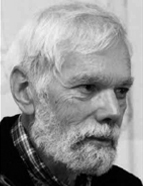

The son of the historian António Gonçalves Mattoso, he pursued his secondary education at the Rodrigues Lobo Secondary School in Leiria and the Gil Vicente Secondary School in Lisbon. He subsequently undertook studies in Philosophy and Theology at the Benedictine monastery of Singeverga (1951–1957), which he entered at the age of 17. He then obtained a degree in Historical Sciences from the Faculty of Philosophy and Arts at the Catholic University of Leuven (1957–1960), graduating with the thesis L’Abbaye de Pendorada des origines à 1160 , which earned the highest distinction. At the same institution, he later completed his doctorate in 1966 with a dissertation entitled Le monachisme ibèrique et Cluny. Les monastères du diocèse de Porto de l’an mille à 1200 , supervised by Léopold Genicot and first published in Leuven in 1968 . He taught Church History at the Singeverga Monastery (1960–1967), at the Higher Institute of Ecclesiastical Studies in Porto (1968–1969), at the Higher Institute of Ecclesiastical Studies in Lisbon (1969–1970), and at the Faculty of Theology of the Catholic University, also in Lisbon in the same academic year. In 1971, he joined the Faculty of Arts of the University of Lisbon as an Assistant Professor, where he remained until 1978, teaching various courses including History of the Ancient Near East , Historical Methodology, and several subjects and seminars in Medieval History. In 1978, he transferred to the Faculty of Social and Human Sciences at the Nova University of Lisbon, where he taught Methodology and Theory of History as well as a range of medieval-themed subjects and seminars. He achieved habilitation and full professorship at this institution in 1979. He also lectured on Institutional and Political Medieval History at the Faculty of Arts of the University of Coimbra (1980–1981) and coordinated a course on History of Land Use and Spatial Planning in the Civil Engineering programme at the Instituto Superior Técnico (1993–1995). Following the independence of East Timor, he resided there between 1999 and 2006, teaching various subjects at the Major Seminary in Dili and courses in Portuguese Literature at the local university. Internationally, he delivered lectures or participated in conferences at universities in Paris (Sorbonne), Bordeaux, Poitiers, Santander, Santiago de Compostela, Seville, Oviedo, and Rome, particularly throughout the 1980s and 1990s. In addition to holding numerous scientific and administrative responsibilities within the Faculty of Social and Human Sciences and the Nova University of Lisbon , including serving as Vice-Rector (1991–1995) , he also chaired the Committee for the Reform and Restructuring of the Torre do Tombo National Archive (1986–1988), presided over the Portuguese Archives Institute (1988–1990), directed the Institute of National Archives/Torre do Tombo (1996–1998), and served as Vice-President of the Higher Archives Council (1999). He was a full member of the Portuguese Academy of History and the Lisbon Academy of Sciences.
This work is financed by national funds through FCT - Foundation for Science and Technology, I.P, in the scope of the projects UIDB/04311/2020 and UIDP/04311/2020.
